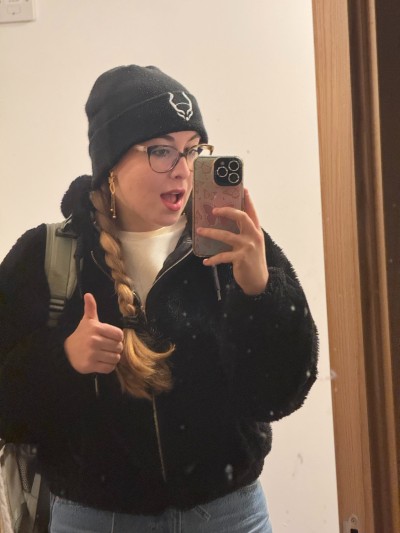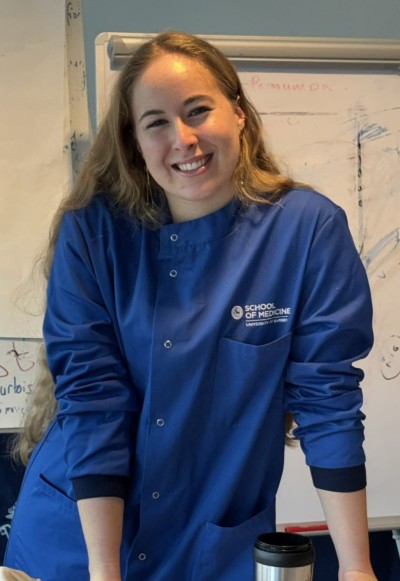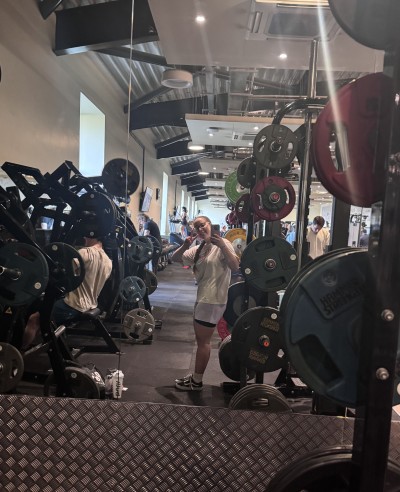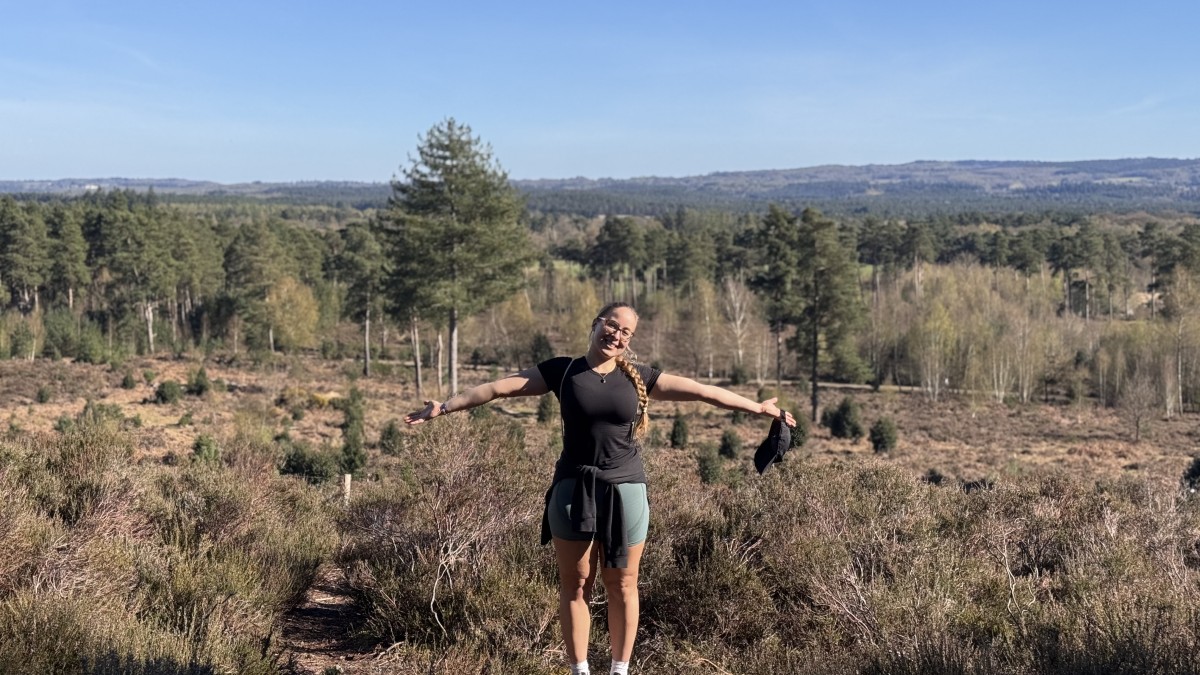A week in the life of a medical student
Hi! I’m Rebeka, a first-year medical student at the University of Surrey. As you can imagine, studying medicine is pretty full-on. There are lots of lectures and you need to stay on top your academic workload, but there’s also a lot to enjoy and it’s really important to look after your personal wellbeing. Let me take you through a typical week.

We start our week with a biosciences-based Monday which is packed with four to eight lectures delivered by a range of doctors and specialists. The content is intense but fascinating, covering everything from cell biology to pharmacology and case discussions. Despite the long hours, the variety of teaching styles keeps the day engaging and helps lay a strong foundation for clinical knowledge. All Monday sessions take place at the Kate Granger Building, which is a 10-minute walk from the Manor Park student village.
Tuesdays offer a refreshing change of pace, without fixed lectures. Instead, we focus on placements in either mental health or general practice, gaining hands-on exposure to real clinical settings. We also dedicate time to our special study units, which involve independent research projects tailored to our interests. A more flexible day means we can catch up on self-directed learning and life admin, and in the evening I like to unwind with classmates and sometimes head into town for a group dinner.

Our Wednesdays are based at CASE (Centre for Anatomical and Surgical Education) which is in the Leggett building, right next to the Manor Park student village. The day is filled with a range of sessions covering anatomy and radiology lectures, case-based discussions and teaching in the dissection room. It’s great to learn from real human specimens as it enhances our understanding of anatomical structures and their clinical relevance. It’s a day that truly brings our studies to life.
Thursdays are focused on developing our clinical and communication skills, which are essential for being a good doctor. We’re based in the Surrey Clinical Simulation Centre and sessions alternate between communication workshops, physical examination training, procedural skills practice and OSCE preparation. Some parts of the day are self-directed, allowing us to focus on areas where we need improvement. We regularly work in pairs or small groups, simulating patient interactions and learning to take histories with professionalism and empathy.

Finally, Fridays follow the standard 9am–5pm schedule but unlike the other days we focus more on short formative assessments to test our understanding from the week, team-based learning activities and problem-solving. The day also includes structured revision and giving feedback to your team on the week’s progress. We usually end the day by holding a meeting with our professional development group and mentor where we aim to develop our personal and professional skills, reflect on our growth and set goals.
Although the schedule is intense, it’s rewarding to see how much I’m progressing week by week. When the weekend rolls around, I enjoy my downtime and make the most of having Surrey Sports Park on the doorstep and beautiful countryside nearby to explore!

"When the weekend rolls around, I enjoy my downtime and make the most of having Surrey Sports Park on the doorstep and beautiful countryside nearby to explore!"
Find out more about our School of Medicine and our Medicine (Graduate Entry) BMBS course.